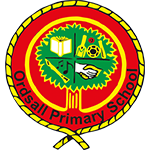Curriculum
At Ordsall Primary School, our curriculum is designed to ensure that every child can Play, Learn and Grow Together. We aim to provide a rich, ambitious and coherent curriculum that enables all learners to know more, remember more and do more over time.
Our curriculum is rooted in:
- Substantive knowledge – the essential facts, concepts and content of each subject.
- Disciplinary knowledge – the distinct ways of thinking, questioning and working that belong to each subject discipline.
We believe that a high-quality curriculum empowers children to develop secure understanding, build long-term knowledge and develop the confidence to apply what they learn in new and challenging contexts. It also ensures that every child sees themselves represented, feels valued and knows they belong.
A Curriculum Built on Disciplinary and Substantive Knowledge
Across all subjects, our progression maps set out the precise substantive knowledge that pupils must learn and the disciplinary knowledge they must develop as they move through school. Each subject is treated as a discipline in its own right, with clearly defined expectations for:
-
What children should know.
-
What children should be able to do.
-
How children should think, question and behave as historians, geographers, scientists, artists, musicians, linguists and mathematicians.
This approach ensures a coherent and connected curriculum, where learning is sequenced deliberately and built cumulatively from Nursery to Year 6.
By being explicit and intentional, our curriculum avoids stereotypes, ensures fair representation and gives every child the change to succeed.
How Learning Is Structured: Our Ordsall Lesson Design
Across the school, learning is delivered through a shared lesson design that provides consistency for pupils while allowing teachers to respond flexibly to need. This structure supports children to build knowledge securely, practise skills effectively and reflect on their learning.
Lessons typically follow six stages:
-
Big Picture – pupils understand why they are learning something and how it connects to what they already know.
-
Revisit – key prior knowledge and vocabulary are revisited so learning is secure and ready to build upon.
-
Teach – teachers provide clear explanations, modelling and examples.
-
Learning Together – pupils practise with guidance, support and discussion.
-
Independent Learning – pupils apply their learning independently with appropriate scaffolds.
-
Reflect – pupils review what they have learned and consider next steps.
This shared structure helps pupils develop confidence, independence and strong learning habits over time.
Underpinned by Rosenshine’s Principles of Instruction
Our curriculum is delivered through consistent instructional routines shaped by Rosenshine’s Principles. This includes:
-
regular opportunities to revisit and retrieve prior learning
-
small, well-structured steps that reduce cognitive load
-
clear teacher modelling and thinking aloud
-
guided practice before independent work
-
high success rates supported by scaffolds and adaptations
-
frequent checking for understanding and responsive teaching
These principles help ensure that every child is able to access, understand and retain the curriculum knowledge we teach. They also promote equity by ensuring no child is left behind and every learner receives the support they need to thrive.
A Curriculum That Reflects Our Vision and RESPECT Values
Our curriculum supports children not only academically but socially, emotionally and morally. Through the curriculum, pupils develop our RESPECT values:
-
Be RESILIENT at all times
-
Give 100% EFFORT
-
SUPPORT others and ourselves
-
Show PASSION in all we do
-
Take part in ENRICHMENT opportunities
-
Treat everyone with COMPASSION
-
Use TEAMWORK to achieve
-
Be RESILIENT at all times
These values are woven throughout subject content, routines, enquiry, discussions and enrichment opportunities. Our commitment to diversity, equity, inclusion and belonging ensures that pupils learn about different cultures, histories and perspectives, challenges discrimination, recognise fairness and value difference as a strength.
Inclusive, Ambitious and Accessible for All
We are committed to ensuring that every pupil can access the full curriculum. This means:
-
adaptations that support need without reducing challenge
-
vocabulary and knowledge taught explicitly and revisited frequently
-
consistent visual and linguistic scaffolds across subjects
-
proactive planning for SEND, disadvantage and individual needs
-
classroom structures that promote independence, confidence and equity
We actively identify and remove barriers so that every child, whatever their background, identity or starting point, is able to participate fully and flourish.
We believe that all children, regardless of background or starting point, are entitled to a curriculum that equips them for the next stage of their education and for life beyond primary school.
Preparing Children for Their Future
By the end of Year 6, children leave Ordsall with:
-
a secure body of substantive knowledge across all subjects
-
the disciplinary understanding needed to think critically, question, analyse and create
-
the ability to apply knowledge with independence and confidence
-
strong learning habits grounded in Rosenshine’s principles
-
a deep sense of belonging, responsibility and pride in themselves and their school
-
an appreciation of diversity, commitment to fairness and the confidence to be themselves
Our curriculum ensures that children are ready for the challenges of secondary school and the opportunities of the wider world.
Evidence-Informed Curriculum Design
Our curriculum design and teaching approaches are informed by educational research, including guidance from the Education Endowment Foundation (EEF).
This research emphasises the importance of:
-
a well-sequenced, knowledge-rich curriculum
-
high-quality teaching and clear instructional routines
-
regular retrieval and revisiting of prior learning
-
adaptive teaching that supports all pupils without lowering expectations
These principles underpin our use of clearly defined substantive and disciplinary knowledge, our shared lesson design, and our commitment to equity, inclusion and ambition for every child.

